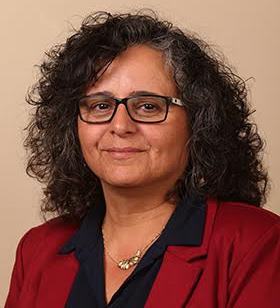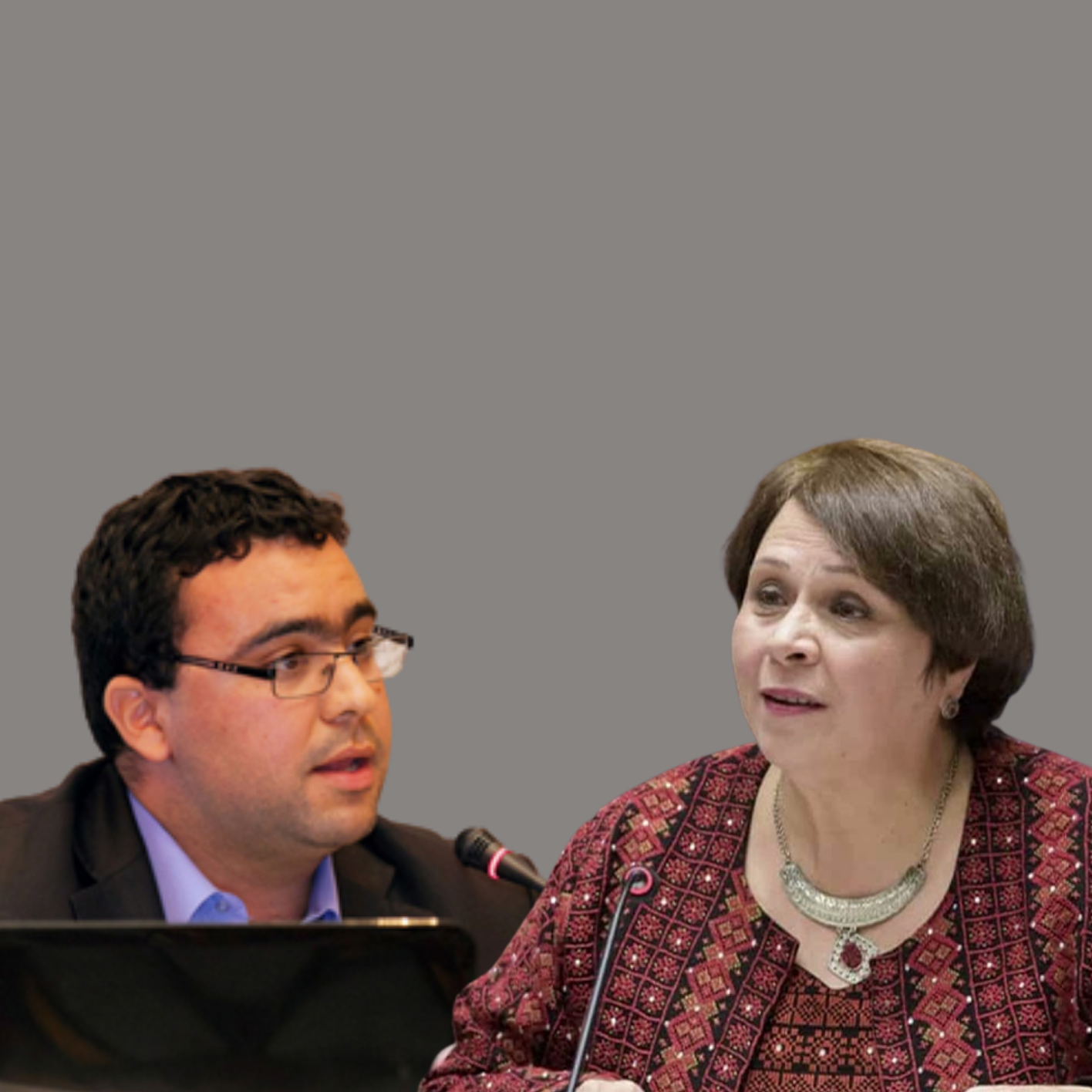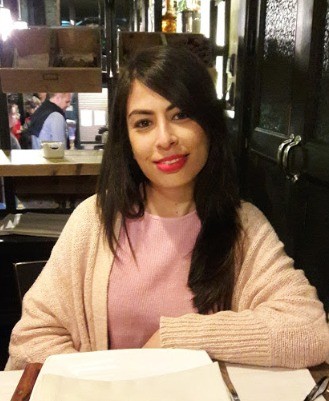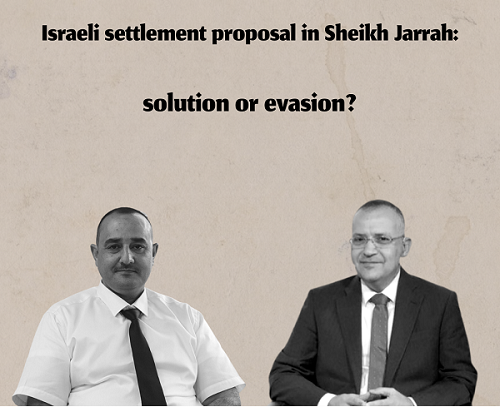
Introduction:
At the time of this interview with MK Aida Touma-Suleiman following the results of Israel’s elections, the Israeli President had not yet mandated either Likud leader Benjamin Netanyahu or Blue-White leader Benny Gantz to form a unity government.
Our discussion with Touma-Suleiman focused on the repercussions of these election results on Palestinian citizens inside the Green Line, especially after the Joint List emerged as the third largest power in the elections. This created a new reality in the political arena in Israel in addition to the possible repercussions these elections could have on the Palestinian political scene and the course of action this new government could take regarding the future of the Palestinian-Israeli conflict in light of the deadlock in the political process.
The developments that came after Netanyahu and Gantz were mandated to form a unity government and the position of the Joint List regarding this mandate are not included in this interview. Following is the full text of “Hosted by MIFTAH” interview:
**What is your take on the recent Israeli Knesset elections?
We in the Joint List have been able to achieve a near historic accomplishment in terms of support, gaining the trust of our Arab community and having such a high number of Jewish voters that voted for the Joint List. Today, the List is the only force on the Israeli political map considered left-wing and the only one opposing the occupation and working for true democracy and equality in society. We also managed to deliver a real blow to the Israeli right and weaken Netanyahu by increasing the percentage of voters among the Arab community, thereby regaining the three seats we lost in the previous elections. This should not be underestimated. Everyone knows now that we are capable of having a considerable impact on Israeli politics and that we cannot be ignored or neutralized in the political equation from now on. This was a real battle over legitimacy and over the weight of the political representation of the Arab Palestinian population. There was an attempt to undermine the political representation of the Palestinian minority and turn them into fragmented groups, vulnerable to attacks by Zionist parties. However, through sticking together and seriously working to gain the trust of the people, we were able to prevent this from happening .
In general, the election results in Israel reflect the ruling crisis in the country; this crisis has manifested itself in two major areas: the first is in Netanyahu’s extremist and fascist policies, which are aimed at plans and intentions far larger than they are capable of. That is, there is a huge gap between Netanyahu’s attempts to achieve his dream of a Greater Israel and his inability to implement this on the ground because of the situation in the region. Therefore, the alternative for him has been to be ruthless in settlement growth and in his brutal oppression of the Palestinians.
**What about the political forces that are trying to present themselves as an alternative?
Unfortunately, they are similar to Netanyahu; the main differences between them and Netanyahu are over internal Israeli political affairs but not issues pertaining to the occupation or settlements. This is why there is a ruling crisis in Israel that none of the current political leaders are able to pose an alternative to. Hence, we are seeing alignments that do not allow for the formation of a government; most likely the direction will be towards a so-called national unity government.
**If efforts fail to form a government by one of the major parties, do you think it is possible there will be a third round of elections
That is a possibility, even if Gantz insists that he wants a unity government. However, it is highly possible that if he does not succeed in dismembering the camp Netanyahu built there will be a revolt within the Likud against Netanyahu, because his condition is a unity government without Netanyahu – that is, an alliance with Likud without Netanyahu. If there is no real revolt within Likud against Netanyahu, Gantz will fail to form the government. If this happens, it is very possible there will be another round of elections.
**How will the election results impact the Joint List and how can these results be invested in favor of Palestinian citizens inside the Green Line and for the Palestinian situation as a whole?
First, we proved we cannot be neutralized in the political equation in Israel. On the contrary, because of the balance between the Jewish political approaches, we have become the touchstone on many things. This is a power we should strongly invest in. The Arab community expects a united front and joint resistance action from the Arab List and for us to use the strength we gained from the elections to achieve the people’s demands. We think that if we can push Netanyahu out for good from the political game we would have offered the Palestinian people the biggest service at this moment in time because Netanyahu is seeking with all his strength to implement the “Deal of the Century” and to eliminate any hope for an independent Palestinian state. However, it is most definite that any alternative to Netanyahu at this stage will not come with the same power, connections and regional impact as he has, which will undermine the plans this man wanted to put into action.
**In terms of the government formation, what is the Joint List’s positon if it were offered to join the government under Gantz? Is this a possibility or do you have another positon on such a government?
I don’t think this is a possibility for Gantz because he is looking to form a national unity government and there is nothing in his ideology that would allow him to present us with such an offer. Second, even if he did put this offer to us, there are political entitlements pertaining to the broad guidelines for such a government. We would not even consider the offer if these guidelines do not come close to the minimum ceiling of our demands, most importantly ending the occupation. I don’t see this happening in any government that it still entrenched in the occupation of our people. Once this occupation ends, things will be different.
**How do you envision political negotiations between Palestinians and Israelis in light of the recent Israeli election results?
Let us first see what kind of election will be formed; we should not speculate. But if it is a right-wing government under Netanyahu, there is no peace to talk about. If it is a Gantz government with a coalition from which Likud is excluded, this will be different than a so-called “national unity” government. So, it all depends on which kind of government will be formed. The truth is, Gantz is not much different in his overall perspective. He could be different in terms of internal Israeli issues but when it comes to the Palestinian people’s cause and regional issues his views are not much different than those of Netanyahu. He also speaks about annexation of the Jordan Valley as a security requirement and leans on other circles within Israeli society, so we just need to wait and see how things pan out.
**What is your message to the Palestinian leadership?
If there is any message, it is that there is power in unity and that you cannot achieve anything for the Palestinian people as long as you are fragmented and as long as there are divisive voices among us. We need serious efforts to mend the cracks and to repair the fabric of our society, people and leadership, so we can truly have an impact on policies adopted for this region.
Aida Touma-Suleiman was born in Nazareth on July 16, 1964. She is a Palestinian politician and women’s leader. She is currently a member of Knesset within the Joint List representing the Democratic Front for Peace and Equality and is head of the committee on the status of women. She is the first Arab MK to become head of a parliamentarian committee in the Israeli Knesset. Before her entry into the Knesset in 2015, Touma-Suleiman was editor-in-chief of Al Itihad newspaper, which is one of the oldest and most prominent Arabic-language newspapers in Israel and is affiliated with the Israeli Communist Party. She was also the director-general of the Association for Women against Violence, the largest women’s association inside the Green Line.








